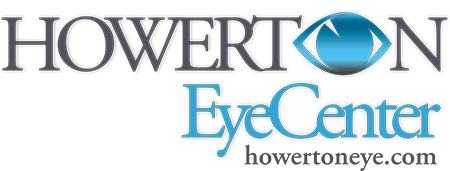People who experience difficulty seeing objects at a distance but can clearly see objects close up have what is called myopia, otherwise known as nearsightedness. Around 25% of people in the United States experience some form of nearsightedness. At Howerton Eye, our expert eye doctors can diagnose the severity of your myopia and provide you with the right eye treatment option, like glasses, LASIK, or implantable contact lenses.
What Is Myopia?
Myopia, or nearsightedness, is a common condition that causes faraway objects to appear blurry or fuzzy. Vision becomes blurred through myopia when your eye does not bend, or refract, light properly. Your eye may not interpret light correctly if the shape of your eyeball is oblong or the cornea is too curved. Other frequent symptoms of myopia include:
- Eye Strain
- Headaches
- Squinting
Our skilled eye doctors can perform a comprehensive eye exam to help determine the severity of your nearsightedness. If you have less severe myopia, you can help manage your risk of further development by limiting exposure to direct sunlight by wearing ultraviolet protected sunglasses, which you can pick up at our onsite Optical Shop.
When continuously performing close-up activities like reading a book or working on a computer screen, reduce eyestrain by glancing away for 20 seconds every 20 minutes. Eating healthy foods like leafy greens or omega-3 rich meat like salmon provides great nutrients to enrich your eyes. And most importantly, remember that regular check-ups with your eye doctor are vital for monitoring any changes that could be cause for concern.
Treatment Options for Moderate to Severe Myopia
The degree of a person’s myopia severity typically settles once adulthood is reached. Most often, the appropriate corrective action for myopia involves wearing prescription eyeglasses or contact lenses. However, if you have extreme nearsightedness, so much so that seeing more than a foot away or performing daily tasks without corrective glasses or lenses is impossible, you may be a good candidate for eye surgery.
Refractive surgery like LASIK can improve vision by reshaping the cornea, allowing light to properly focus within the eye. Keep in mind that not everyone is a good candidate for LASIK, due to the nature of the procedure which removes eye tissue to fix vision. Severe myopia may require too much tissue to be removed, not leaving enough behind to maintain a healthy eye. An alternative surgical option is permanent, implantable contact lenses. This safe treatment lets you get away from wearing everyday eyeglasses and regular contact lenses that degrade over time.
Contact Us Today for More Information!
We have offices conveniently located in Austin, Southwest Austin, and Kyle, TX. If you aren’t sure which myopia treatment option is right for you, schedule a consultation today with one of our eye doctors and our knowledgeable staff will assist in answering all your questions. We’d love to help improve your quality of life through clarity of vision!


